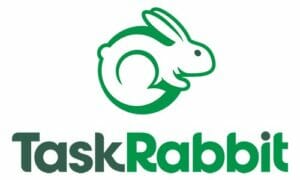
In the competitive world of service businesses, apps like Thumbtack have become essential for connecting professionals with clients. Whether you run a home repair business, offer personal fitness coaching, or specialize in photography, Thumbtack has provided a central space for marketing and connecting with leads.
However, relying on a single platform can limit growth and may not fully align with every business's needs. There are numerous other apps like Thumbtack that can help you grow your business. Each platform has its unique features and target markets, which may be more suitable for your specific needs.
This guide delves into some of the top Thumbtack alternatives, breaking down their strengths, ideal users, and potential challenges to help you make an informed choice for your service business.
Understanding the Thumbtack Platform
Thumbtack is a popular platform designed for service providers to connect with clients. It covers a wide range of services, from home improvement to personal coaching. Service professionals can list their offerings, and potential clients can easily find and hire them.

One unique feature of Thumbtack is its lead generation model. Service providers receive client requests and pay to respond to these leads. This ensures that professionals get access to genuine potential clients. However, paying for leads might not suit everyone's budget or business model. Understanding this can guide you when considering Thumbtack alternatives.
Why Consider Thumbtack Alternatives?
Diversifying your advertising strategy can unlock new opportunities and enhance your service business’s reach. While Thumbtack is a powerful platform, it has limitations, such as competitive listing fees and a highly saturated market, where standing out can be challenging. By exploring alternatives, you can access other target audiences, find platforms better suited to your niche, and sometimes save on advertising costs. Also, each platform offers distinct features, like enhanced local search capabilities, lower fees, or niche-specific leads, which could better match your business’s goals.
Factors to Consider When Choosing an App like Thumbtack for Advertising
Before diving into each alternative, let’s look at the essential criteria that can help you choose the right platform:
- Audience Reach: Ensure the platform aligns with your target demographics and has enough local or industry-specific reach to generate leads effectively.
- Cost Structure: Platforms vary in how they charge businesses, from subscription models to commission-based fees. Understanding these costs upfront helps you assess long-term affordability.
- Ease of Use: Some platforms have simple, user-friendly interfaces, while others might require a learning curve. Choose a platform you find intuitive and efficient and can provide online appointment booking.
- Customer Support: Quality customer service can make a difference, especially if you rely on these platforms for steady leads and customer engagement. This is especially important if you want to integrate with tools such as handyman software.
1. HomeAdvisor
HomeAdvisor is a well-established lead generation platform focusing primarily on home-related services. If your business offers services in home improvement, landscaping, plumbing, or similar fields, HomeAdvisor can connect you with customers actively searching for these services.
- Pros: Extensive customer base, particularly for homeowners; strong lead generation features.
- Cons: High fees and competition; some users report variable lead quality.

HomeAdvisor offers a project-based lead system, which can help you quickly connect with customers seeking specific services, although it’s important to assess if the cost-to-lead ratio makes sense for your business.
2. Angi (formerly Angie’s List)
Angi, known previously as Angie’s List, provides a platform where customers can review and hire service providers in a wide range of categories, from home repair to healthcare services.
- Pros: Strong focus on customer reviews, which can enhance your credibility; diverse service categories.
- Cons: Competitive and requires a proactive approach to manage customer reviews effectively.

With its emphasis on verified customer reviews, Angi appeals to businesses that benefit from reputation-based marketing. A high rating on Angi can attract quality leads that are often ready to book services quickly.
3. TaskRabbit
TaskRabbit is ideal for smaller, task-based services, particularly those that require physical presence, such as furniture assembly, delivery, or cleaning.
- Pros: Excellent for connecting with clients in need of quick, local assistance; low-cost platform to get started.
- Cons: Limited to specific service categories; primarily popular in metropolitan areas.

With its mobile-friendly platform and rapid job matching, TaskRabbit is ideal for professionals seeking on-demand work opportunities and willing to work within their local area.
4. Bark
Bark functions on a pay-per-lead model, which can be beneficial for businesses that want to control how much they spend on lead generation. They offers services for a wide range of industries, from digital marketing to pet care.
- Pros: Flexible pricing based on leads; diverse industry reach.
- Cons: Costs can add up if leads do not convert; lead quality can vary.
The flexible Bark approach makes it a good choice for businesses that prefer to select leads based on budget and project suitability, offering more control over lead acquisition costs.
5. Houzz
Houzz is a specialized platform tailored to home improvement and interior design. If your service business falls within this niche, Houzz's community of homeowners and professionals offers an ideal environment for visibility.
- Pros: Visual-centric platform; excellent for creative professionals and designers; includes options for selling products.
- Cons: Limited to home design and related services; can be competitive.
Houzz also offers unique features like a project showcase and direct client communication, which benefit professionals in the visual and home-centered industries.
6. Yelp
Yelp’s reputation-driven platform is particularly valuable for businesses in service sectors where customer reviews influence purchasing decisions, such as hospitality, food services, and health and wellness.
- Pros: Strong impact of reviews on customer acquisition; wide audience reach.
- Cons: Yelp ads can be costly; requires ongoing management of customer reviews.
Yelp's focus on customer reviews provides an effective way for service businesses to build credibility, especially in local markets where word-of-mouth and ratings matter significantly.
7. Nextdoor
Nextdoor offers businesses the ability to advertise within hyper-local communities, making it ideal for businesses that rely heavily on neighborhood recognition, such as handymen, landscapers, and dog walkers.
- Pros: Localized advertising within specific neighborhoods; highly engaged community audience.
- Cons: Limited reach outside of neighborhood focus; best suited for smaller, local service providers.
With Nextdoor, businesses can create a presence in their community, reaching customers who prefer working with familiar, local providers.
8. Porch
Porch is a platform specialized in connecting homeowners with home improvement professionals, from painters to electricians.
- Pros: Niche-specific leads for home repair; easy integration with major retail partners.
- Cons: Limited to home services; may have a smaller audience reach.

Through its collaboration with retailers like Lowe’s, Porch reaches customers ready to take on home improvement projects, creating a promising opportunity for service providers in this sector.
9. Facebook Business and Marketplace
Facebook offers several ways to advertise a service business, from Facebook Business Pages to Facebook Marketplace and targeted ads. The platform allows service providers to reach a highly specific audience based on demographics, interests, and location, making it versatile for both local and national service-based businesses.
- Pros: Highly customizable ad targeting; integration with Instagram for wider reach; good for building brand awareness.
- Cons: Requires knowledge of Facebook’s ad platform for maximum impact; may involve ad costs.
Facebook Marketplace is particularly useful for smaller service businesses looking to connect with local clients. Meanwhile, a well-managed Facebook Business Page can serve as a portfolio, displaying reviews, contact information, and service updates. For businesses with the budget, Facebook Ads provide sophisticated targeting options to attract the right clientele.
10. Google My Business (Now Google Business Profile)
Google Business Profile is essential for any service business aiming to establish a local presence. This free tool helps you appear in local search results on Google Search and Maps, making it easier for nearby customers to find your business.
- Pros: High visibility in local searches; integrates with Google Maps; no cost to set up.
- Cons: Highly competitive, especially for popular service types; requires regular management of reviews and updates.
Google My Business works best for local businesses seeking to attract nearby customers, especially those searching for services “near me.” Optimizing your profile with accurate information, hours of operation, photos, and regular posts can greatly increase visibility. Additionally, positive customer reviews can boost your ranking and attract new clients.
Thumbtack vs. Alternatives: A Comparison Table
| Platform | Best For | Pricing Model | Service Type |
|---|---|---|---|
| Thumbtack | General services | Pay-per-lead | Various |
| TaskRabbit | Home services | Pay-per-task | Home-based |
| Angi | Home improvement | Subscription | Specialized home services |
| HomeAdvisor | Home repair | Pay-per-lead | Renovations |
| Bark | Various services | Pay-as-you-go | Professional and personal |
| Porch | Home improvement | Pay-per-lead | Home Services |
| Houzz | Home design | Free to list | Home-focused industries |
| Nextdoor | Local services | Advertising fee | Community-driven |
| FaceBook Business | Service professionals | Pay-per-lead | Local services |
| Google Business Profile | Service professionals | Free to list | Local services |
Other Niche Platforms (Bizzby, Care.com, Rover, etc.)
Several niche platforms cater to specific service industries, offering a more focused environment for connecting with relevant clients. For example, Bizzby specializes in handyman services, Care.com focuses on caregiving services (babysitters, nannies, senior care), and Rover connects pet owners with pet care providers like dog walkers and pet sitters.
- Pros: Access to an audience specifically looking for your type of service; less competition from unrelated businesses.
- Cons: Limited reach outside of the niche; may not offer as diverse an audience as larger platforms.
These niche-specific platforms can be highly effective if your business falls within their scope. By advertising on a platform where clients already know what to expect, you can more easily connect with leads that are serious about booking your services.
Factors to Consider When Choosing an Alternative
When selecting an alternative to Thumbtack, evaluate each platform's unique features. Understand which platform aligns with your business goals and target audience. Consider fees, industry focus, and regional presence in your decision-making process.
Identify what makes a platform suitable for your niche. Consider user interface, lead generation tools, and networking opportunities. Ensure the choice enhances both market reach and client engagement.
- Platform fees and pricing models.
- Specific industry focus and target audience.
- Geographical presence and user engagement.
- Interfacing with a work order system
Maximizing Your Presence on Alternative Platforms
To maximize your presence on alternative platforms, focus on optimizing your profiles. A well-crafted profile attracts potential clients and boosts credibility. Include detailed service descriptions and professional photos.
Consistency is key across platforms. Keep your branding uniform and update regularly. Engage with reviews and respond promptly to client inquiries.
- Create a complete, professional profile.
- Use high-quality images and detailed descriptions.
- Use technology such as contractor software to streamline your business
- Stay responsive and engage with customer feedback.
Utilize each platform's promotional tools for increased visibility. Leverage analytics to refine strategies. By doing so, you'll enhance your reach and cultivate relationships.
Conclusion
When it comes to advertising a service business, Thumbtack is a valuable tool, but it’s not the only option. With a variety of apps like Thumbtack available, each catering to specific industries, customer types, and geographic areas you can tailor your advertising strategy to meet your unique business goals. From platforms like HomeAdvisor and Angi for home services to social networks like Facebook and Nextdoor for local exposure, and niche platforms for specialized services, the choices are diverse.
Choosing the right platform requires a good understanding of your business type, target audience, and advertising budget. By experimenting with a few options, you can develop a multi-platform strategy that increases your visibility, attracts quality leads, and grows your business sustainably. Diversifying your advertising efforts across a few of these platforms will ensure you’re not reliant on any single source for customers, positioning your service business for long-term success.
FAQs
- What is the best alternative to Thumbtack for home services?
HomeAdvisor and Angi are often considered the best alternatives to Thumbtack for home services, as they specialize in connecting home service providers with clients seeking these services.
- Are there free alternatives to Thumbtack?
Yes, Google My Business and Nextdoor offer free options for advertising local services, and both platforms are highly effective for reaching nearby clients.
- How can I improve my visibility on these platforms?
To enhance visibility, ensure your profile is complete with accurate information, high-quality photos, and positive customer reviews. Consistently engaging with clients and updating your profile can also boost visibility.
- How do I know which platform is best for my business type?
Look at the platform’s main user base and its most successful service categories. For example, Houzz is excellent for home design, while LinkedIn ProFinder is best for professional services like consulting.
- What are the most effective advertising tips for service businesses?
Focus on getting positive reviews, engaging regularly with potential clients, using targeted ads where appropriate, and creating a strong, complete profile to build trust and attract leads.
